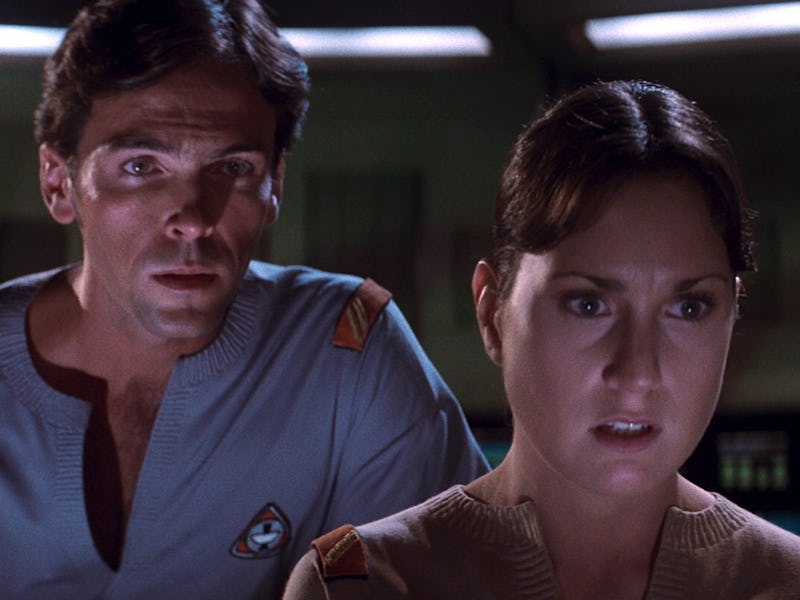Pluto TV Just Quietly Added the Most Radical Sci-Fi Movie Franchise — For Free
Set a course.

As tempting as it is to be cynical about large sci-fi franchises, every single long-running film series has its ups and downs. You don’t have to feel sorry for struggling multi-million dollar epics, but some scrappy sci-fi movies, like 1977’s Star Wars, are hits out of the gate, while other franchises are perpetually behind the eight ball. You might think Star Trek is an indestructible brand name, but as a film series, it’s been a scrappy story of endurance and adaptability.
After hitting Paramount+ in July, all 13 Star Trek films are now also streaming for free on Pluto TV. Here’s why you should watch all of them, even the infamous ones.
Despite being around for nearly 60 years and producing nearly 800 hours of content, Star Trek isn’t considered an entertainment juggernaut in the same sense as Star Wars and Marvel. There are two essential reasons for this, which become apparent when you watch the films. Star Trek is more overtly political than Marvel or Star Wars, and it changes storytelling modes on a dime.
George Takei as Sulu and William Shatner as Kirk in The Wrath of Khan.
The second point is most obvious when you watch the Trek films in order. In 1979, Star Trek: The Motion Picture had been conceived as a pilot for a second live-action TV series, and the story has the hallmarks of a classic 1960s Trek episode. Directed by Robert Wise (The Day the Earth Stood Still and West Side Story), the film scans like 2001: A Space Odyssey with Star Trek nomenclature. Although it made money, it also cost a ton of money, and so when it was time for Star Trek II, the budget was slashed, and director Nicholas Meyer had to come up with an epic using a handful of interior sets. The result was 1982’s The Wrath of Khan, which is shot like a WWII submarine thriller, features a revenge story at its core, and cranks up The Original Series’ nautical vibes.
The pivot from The Motion Picture to The Wrath is a microcosm of just how different the Trek movies can be from each other. The franchise attempted to recapture the magic of Wrath with Nemesis in 2002 and Into Darkness in 2013, but other Trek movies are departures from the departures. The Search for Spock is essentially a mystical road trip movie, while The Voyage Home is an ecological time travel comedy. The Final Frontier is a commentary on religious extremism, while The Undiscovered Country is a political thriller that dissects Western prejudices and imperialist policies, while also touching on aging.
Patrick Stewart as Captain Picard in Star Trek: First Contact.
You can find these themes in Star Wars and Marvel films, but structurally, Star Wars and Marvel films are quite similar to each other. There’s a lot of fighting, and we can generally guess the story beats before they happen. Trek films are nothing like that. There’s no fight at the end of The Voyage Home. The J.J. Abrams-produced reboots are a bit more formulaic, but even the most action-y of them, Star Trek Into Darkness, features moments where Kirk and Spock hesitate to slay their enemy.
The movie franchise tries to bring the philosophy of the various Trek TV series to the big screen, which tends to create some quirks. In 1996’s Star Trek: First Contact, while blasting away at invading Borg, Captain Picard hides in the holodeck, dons a 1940s tuxedo, and acts like hard-boiled Sam Spade-esque detective Dixon Hill. No other sci-fi action movie would do this, but even in the middle of their biggest blockbuster, Star Trek will always take a break to do something contemplative, goofy, or both.